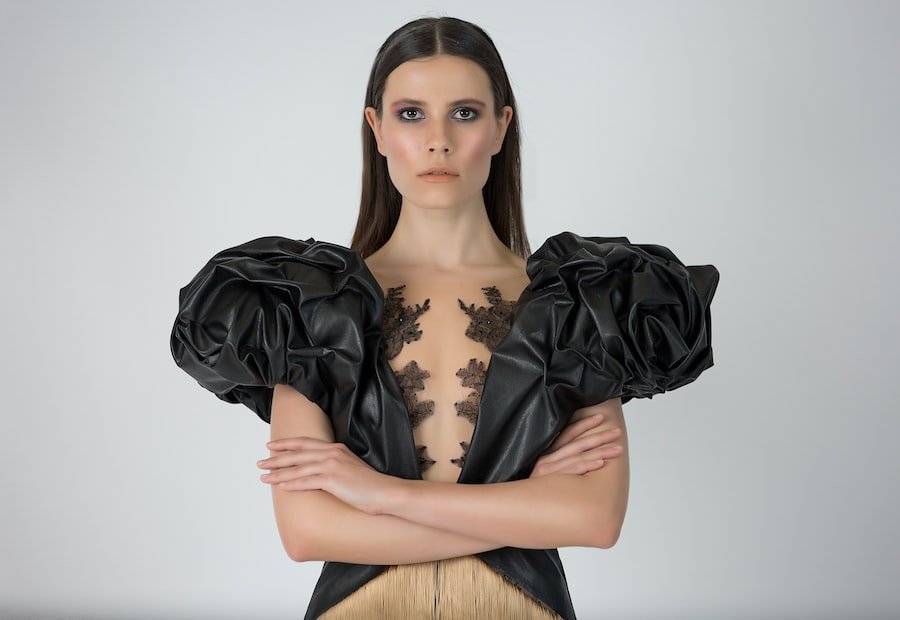

Fashion and Style: German Vocabulary Essentials
German fashion and style have a unique charm that is admired around the world. From classic elegance to avant-garde designs, German fashion is known for its quality craftsmanship and attention to detail. Learning fashion and style vocabulary in German is essential for anyone interested in the industry or simply wanting to express their personal style in the language.
Table of Contents
ToggleClothing items and accessories in German
When it comes to clothing items and accessories, German vocabulary covers a wide range of options. Some common clothing items include “die Hose” (pants), “das Kleid” (dress), “der Pullover” (sweater), and “das Hemd” (shirt). Accessories such as “die Handtasche” (handbag), “der Schal” (scarf), “die Sonnenbrille” (sunglasses), and “der Gürtel” (belt) are also important to know.
Colors and patterns in German fashion
Colors and patterns play a significant role in German fashion. Some vocabulary for colors includes “rot” (red), “blau” (blue), “grün” (green), and “gelb” (yellow). Patterns such as “gestreift” (striped), “gepunktet” (polka dot), “kariert” (checked), and “gemustert” (patterned) are also commonly used.
Types of fabrics and materials in German
Understanding different types of fabrics and materials is crucial when discussing fashion in German. Vocabulary for fabrics includes “Baumwolle” (cotton), “Seide” (silk), “Wolle” (wool), and “Leder” (leather). Other materials like “Kunststoff” (plastic), “Metall” (metal), and “Glas” (glass) are also important to know.
Describing clothing and style in German
Being able to describe clothing and style in German is essential for expressing personal preferences and opinions. Vocabulary for describing clothing includes “elegant” (elegant), “lässig” (casual), “schick” (stylish), and “sportlich” (sporty). Common phrases for describing clothing and style include “Das Kleid ist sehr elegant” (The dress is very elegant) and “Die Hose sieht lässig aus” (The pants look casual).
Fashion trends and styles in Germany

Germany is known for its diverse fashion trends and styles. Currently, some popular fashion trends include minimalist designs, sustainable fashion, and streetwear-inspired looks. In terms of styles, Berlin is known for its edgy and avant-garde fashion scene, while Munich is associated with classic elegance.
Shopping for fashion in Germany
When it comes to shopping for fashion in Germany, there are plenty of options. Vocabulary for shopping includes “der Laden” (store), “das Einkaufszentrum” (shopping center), “der Markt” (market), and “der Flohmarkt” (flea market). Popular shopping destinations in Germany include KaDeWe in Berlin, Alsterhaus in Hamburg, and Maximilianstraße in Munich.
German fashion designers and brands
Germany is home to many talented fashion designers and brands. Some popular German fashion designers include Karl Lagerfeld, Jil Sander, and Wolfgang Joop. German brands such as Hugo Boss, Adidas, and Birkenstock are also internationally recognized for their quality and style.
Fashion and style in German culture
Fashion and style play a significant role in German culture. Germans value quality over quantity and appreciate timeless designs that can be worn for years. The emphasis on sustainability and eco-friendly practices is also reflected in the fashion industry, with many German brands focusing on ethical production and materials.
Useful phrases for discussing fashion and style in German
To effectively discuss fashion and style in German, it’s helpful to know some common phrases. Here are a few examples:
– “Wie findest du dieses Kleid?” (What do you think of this dress?)
– “Ich mag den Stil dieser Jacke.” (I like the style of this jacket.)
– “Welche Farbe steht dir am besten?” (Which color suits you best?)
– “Ich suche nach einer neuen Handtasche.” (I’m looking for a new handbag.)
Conclusion:
Learning fashion and style vocabulary in German is not only useful for those interested in the industry but also for anyone wanting to express their personal style in the language. From clothing items and accessories to colors and patterns, understanding these terms allows for more meaningful conversations about fashion. Additionally, knowing about current fashion trends, popular shopping destinations, and German fashion designers and brands provides a deeper understanding of German fashion culture. So, keep learning and exploring the world of German fashion and style!
FAQs
Why is it important to learn German vocabulary related to fashion and style?
Learning German vocabulary related to fashion and style can be helpful for those who are interested in fashion and style and want to communicate effectively with German speakers in the fashion industry.
What are some common German words related to fashion and style?
Some common German words related to fashion and style include Kleidung (clothing), Mode (fashion), Stil (style), Schuhe (shoes), Taschen (bags), and Accessoires (accessories).
What are some German words related to different types of clothing?
Some German words related to different types of clothing include Hemd (shirt), Hose (pants), Kleid (dress), Rock (skirt), Mantel (coat), and Jacke (jacket).
What are some German words related to colors?
Some German words related to colors include Rot (red), Blau (blue), Grün (green), Gelb (yellow), Schwarz (black), and Weiß (white).
What are some German words related to materials?
Some German words related to materials include Baumwolle (cotton), Leder (leather), Seide (silk), Wolle (wool), Kunststoff (plastic), and Metall (metal).
What are some German words related to accessories?
Some German words related to accessories include Schmuck (jewelry), Uhr (watch), Sonnenbrille (sunglasses), Hut (hat), and Schal (scarf).
If you want to learn German, you can register for classes here. We look forward to hearing from you and helping you become fluent in German!
If you want to learn Norwegian, you can register for classes here. We look forward to hearing from you and helping you become fluent in Norwegian.





